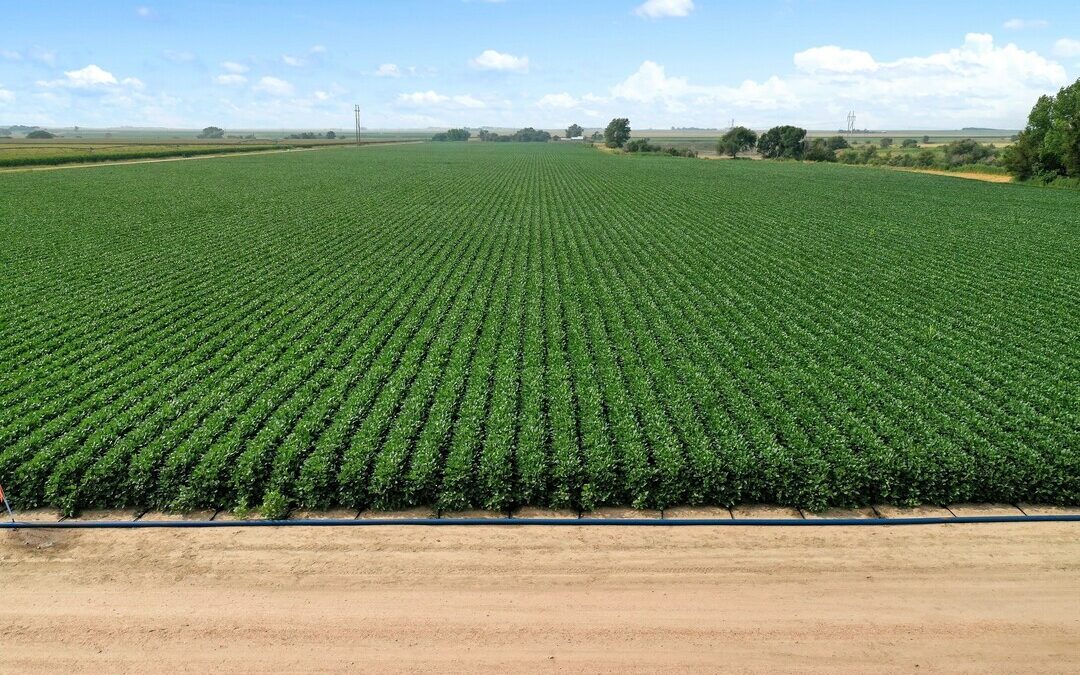PepsiCo Expands Regenerative Agriculture to 3.5M Acres in 2024
PepsiCo boosts renewable energy, advances regenerative farming and nutrition goals in 2024 as part of its global pep+ strategy
PepsiCo said it advanced regenerative agriculture practices across more than 3.5 million acres of farmland in 2024, marking a major step toward its target of reaching 10 million acres by 2030, according to its latest sustainability report.
The company, one of the world’s largest food and beverage makers, said about 20,000 farmers adopted regenerative, restorative or protective farming techniques last year, helping cut on-farm greenhouse gas emissions by 1.6 million metric tons, including soil carbon sequestration.
“Pep+ is not just a sustainability strategy. It’s an ongoing transformation that powers our whole business, from innovation to production, marketing to distribution,” said Ramon Laguarta, PepsiCo’s chairman and chief executive, in the report.
Pep+ strategy, also known as “PepsiCo Positive,” is a strategic, end-to-end transformation that places sustainability and human capital at the center of how the company creates value and growth.
Renewable Energy and Climate Goals
By the end of 2024, PepsiCo met 89 percent of its direct global electricity needs with renewable power, equivalent to about 3,900 gigawatt hours. That is enough to power more than 3,700 homes for a year.
The company also reduced Scope 1 and 2 greenhouse gas emissions, which encompass direct operations and purchased electricity, by 18 percent compared to 2022 levels.
Earlier this year, PepsiCo aligned its climate targets with the latest science, committing to a 1.5°C pathway and reaffirming its ambition to reach net-zero emissions across its value chain by 2050.
By 2030, it aims to halve Scope 1 and 2 emissions and reduce Scope 3 emissions, which account for the bulk of the company’s footprint and include supply chain and product use, by 30 percent for agriculture and packaging and by 42 percent for energy and industry compared with 2022 levels.
In 2024, the company expanded its electric fleet in North America, adding 50 Tesla semi-trucks and 75 Ford electric vans to serve its California operations. It also piloted long-haul electric trucks in Texas and joined a solar energy project through a virtual power purchase agreement.
Water Stewardship
Water remained a priority. PepsiCo replenished about 24 billion liters in 2024, covering roughly 75 percent of the water it used in high-risk watersheds.
Since 2006, the company and its foundation have provided safe water access to more than 96 million people globally, surpassing its earlier 2025 target ahead of schedule.
PepsiCo said it had also improved agricultural water-use efficiency by 22 percent in high-risk areas against a 2015 baseline, exceeding its target two years early.
Sustainable Sourcing and Forest Protection
About 66 percent of PepsiCo’s key ingredients were sustainably sourced last year, while 1 percent fell within an “engaged tier,” making credible progress despite systemic barriers. The company aims to achieve 90 percent sustainable sourcing by 2030.
It also advanced efforts to ensure deforestation-free supply chains by enhancing traceability, utilizing satellite monitoring tools to detect risks in palm oil, sugarcane, and cocoa supply chains, and forming new partnerships, including WWF Forests Forward.
PepsiCo reiterated its target to achieve deforestation-free sourcing by 2025 and deforestation- and conversion-free sourcing by 2030 for high-risk commodities.
Nutrition and Consumer Choices
PepsiCo reported that 67 percent of its beverage portfolio contained fewer than 100 calories from added sugars per 12-ounce serving in 2024.
At the same time, 77 percent of its convenience food portfolio did not exceed 1.3 milligrams of sodium per serving. Both milestones were achieved ahead of schedule as part of its Positive Choices agenda.
The company stated that it is continuing to diversify the ingredients in its foods, with initiatives aimed at expanding the use of whole grains, plant-based proteins, and other nutrient-rich options.
Partnerships and Investments
PepsiCo invested $216 million in long-term partnerships with farmer-facing organizations to support regenerative agriculture transformation.
A collaboration with Walmart in the U.S. and Canada is helping farmers improve soil health and water quality, while a partnership with Yara in Europe is working to decarbonize crop production through optimized fertilizer use.
The company also launched the Positive Agriculture Outcomes Accelerator, which has provided $5 million in funding to grassroots innovation projects in eight countries since 2022.
Challenges Ahead
Despite the progress, PepsiCo acknowledged barriers to scaling sustainability across its value chain. Challenges include the pace of industry-wide adoption of regenerative agriculture, systemic barriers to sustainable sourcing, and the need for supportive infrastructure and policies to enable emissions reductions.
“We’re proud of our progress against our pep+ goals, but we know there’s still work to do,” said Laguarta. “If we continue to move with courage and conviction, I’m confident we can contribute to a world where growth and sustainability go hand in hand.”
Nirmal Menon
Related posts
Subscribe
Error: Contact form not found.


